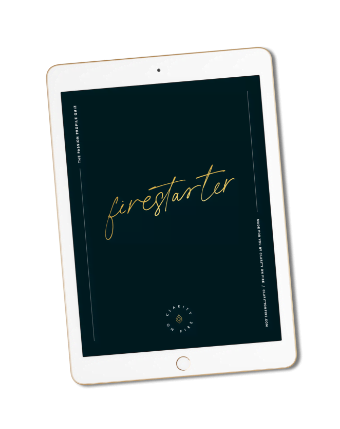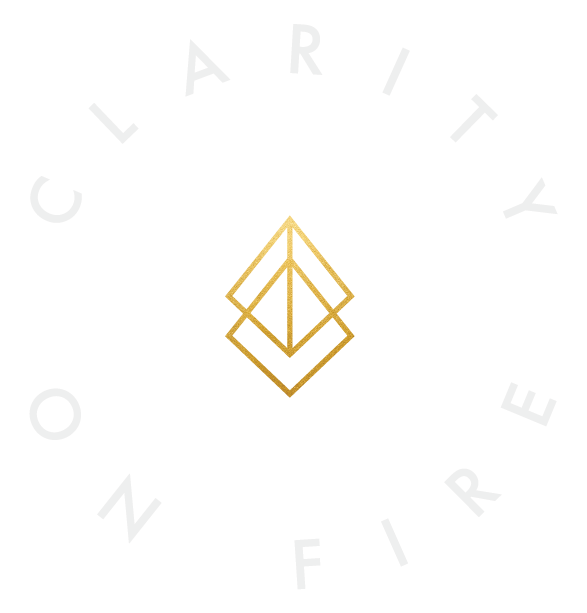I judge myself for my “failures” all of the time. Being a coach doesn’t necessarily change the nasty crap you say to yourself (“You’re lazy, You’re a terrible entrepreneur, You have no idea what you’re doing,” for example). It just means that, typically, you’re more aware of your self-talk and therefore know that it doesn’t have to be true, if you choose otherwise.
I’ve been judging myself about a few things lately. Namely, a particular type of client seemed elusive, and I was frustrated with my inability to find them. Related to that, I was feeling a lot of resistance and laziness around a project that directly tied in to the same client niche.
You name the emotion, I felt it: Anger (at the clients for being elusive), frustration (at the Universe for not feeling abundant), annoyance (with this project that threatened to take up all of my time), resentment (of myself for not being more productive), guilt (for not feeling like a great business person and coach), fear (because if I were good at this, it should feel easier, right?), etc.
And honestly, it’s easy to just stop there in the midst of the blame game: We blame ourselves (“I’m too lazy, untalented, not smart enough”), clients (“They don’t understand the value”), the economy (“It’s too hard to make good money in this economy”), the competition (“They have more resources than I do”), your family (“They don’t get me”) … and when you’re blaming something, you’re just diverting your attention elsewhere … not figuring out what’s actually at the root of your failure.
When you can stop pointing the finger at whatever shortcoming you’re hung up on, you’re able to take responsibility for what’s really going on. Because the truth is, our successes and failures are always about something deeper than what we’re blaming them on (and they’re never about the external stuff).
Case in point: My perceived failure wasn’t because I sucked or because I was super lazy, or because the clients weren’t there to be had (there are plenty of coaches in that niche proving me wrong regularly). And once I stopped blaming myself, the clients, and the Universe at large, I was able to make space to breathe and ask myself where the lack and the resistance was coming from.
The answer I got was pretty surprising: “You don’t really want to be focusing on this niche. Not in this way. You’re not getting an influx of clients because you don’t really want them; and you’re feeling resistance to this project because it’s not aligned with what you want, either.”
Well, damn.
Truthfully, I felt a lot of relief when I realized that. And even better, it freed me up to figure out what I really want to be doing, instead of pursuing that particular niche of coaching. I’m way more energetic and excited about the new direction we’ve decided to take.
It’s way, way too easy to blame and blame and blame when you’re feeling like a failure. If I had accepted all of the messages I had about my failure, I’d be wallowing in a state of internal and external blame, plodding along in a niche I didn’t really want to pursue, anyway. I’d be doing no good for myself, and no good for anyone else, either.
My failure had a message for me (and yours does, too): “Your blame game is nothing but blowing smoke. Release the need to judge yourself and everyone else, and start examining this failure.”
Under a the microscope of examination, I realized my failure wasn’t really failure at all. It was the natural result of me pursuing something I didn’t actually want in the first place. And that realization freed me to figure out the next, and better, direction for me to take.
Step aside from yourself, and everyone else, and listen to what your failure is trying to tell you. It has a new direction, or a lesson, or a gentle suggestion, or a clue, or a smack upside the head for you. Turn the volume down on the cynicism and the snark and the attitude and the conflict and the judgment and the blame … and listen up.
Much love,
Rachel (& Kristen)



I went through a similar realization last week (posted on my blog — click my name!). I’ve had a lot of failure and I could never understand why. I finally just dropped everything and stopped /trying/ to do anything. I realized that I was trying to do things I didn’t fully love. They were just ‘related’ to things I loved, but I didn’t absolutely love what I was doing. What I absolutely love to do is blog, meet new people, share new ideas, dance and just experience the world.
I have to add a disclaimer that I am really lucky to be in a position where I can just stop doing the money-making things I don’t care for and focus on developing the things that no one is paying me for. I’m still a student, so I can get away with it.
I intend to focus only on the things I love for the time being. And see what happens. What happens when I put all my passion into just a few things? Will I get “so good they can’t ignore me”? I will I make connections that will lead somewhere? We’ll see…